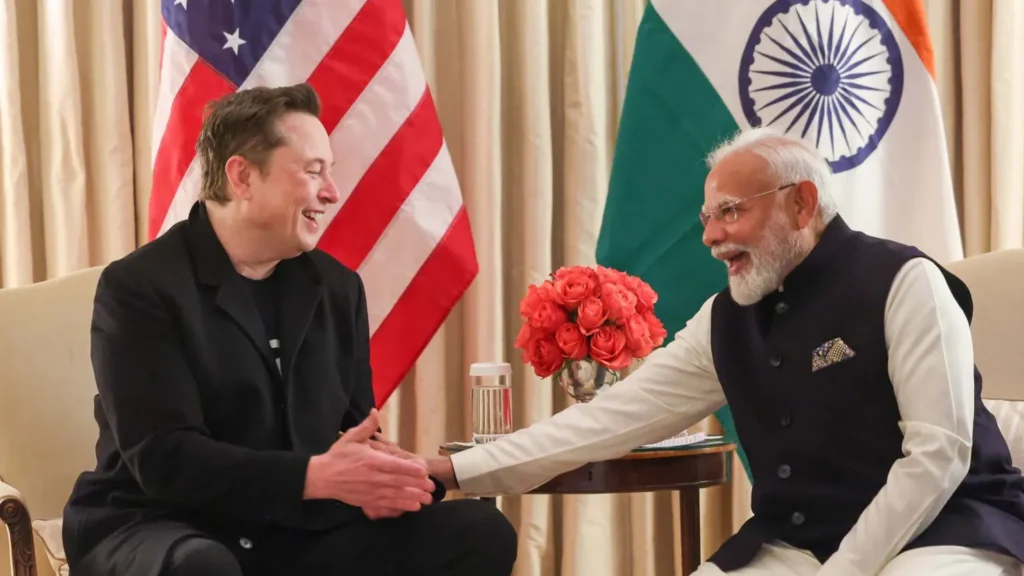Mumbai, India – Tesla Inc. is set to make its long-awaited debut in India next week, officially entering the world’s third-largest automobile market with the opening of its first showroom in Mumbai.
The U.S. electric vehicle (EV) pioneer will unveil its new Tesla Experience Center on July 15, located at the upscale Maker Maxity Mall in the Bandra Kurla Complex (BKC), Mumbai’s premier business district. According to an event invitation obtained by The NY Budgets, the launch event will run for approximately 90 minutes, marking a significant milestone for the company and Indian EV enthusiasts alike.
The new Experience Center will showcase Tesla’s flagship EVs, including the Model 3 and Model Y, and serve as a hub for direct sales, test drives, and customer engagement. Tesla is expected to begin direct sales in India immediately following the launch, offering a fully digital ordering process through its official website and showroom network.
This is Tesla’s first official presence in India after years of anticipation, regulatory hurdles, and discussions about tariffs and factory investments.
Tesla CEO Elon Musk has long expressed interest in the Indian market. The company’s momentum picked up after a high-profile virtual meeting between Musk and Indian Prime Minister Narendra Modi in April. The two reportedly discussed cooperation in technology, renewable energy, and innovation.
During the same month, Tesla’s Chief Financial Officer noted the company had been “very careful” in timing its India entry, signaling strategic caution given India’s complex regulatory and competitive landscape.
Despite India’s population of over 1.4 billion and growing middle class, EV adoption has been slow due to infrastructure challenges, high upfront costs, and limited availability of premium EVs.
Tesla will not manufacture locally in India, at least initially. Vehicles sold in India will be imported from its Shanghai Gigafactory in China and the Gigafactory Berlin-Brandenburg in Germany. This means Indian buyers may face import duties of up to 70%, making Tesla’s cars significantly more expensive compared to domestic EVs.
India has offered incentives to reduce the import duty to 15% — but only for companies that invest $500 million or more in local manufacturing. However, according to Indian Minister of Heavy Industries, H.D. Kumaraswamy, Tesla currently has “no interest” in setting up a local plant.
This stance may evolve if demand in India proves strong enough to justify local assembly or a full-scale Gigafactory.
Tesla’s entry into India will put it in direct competition with major players in the local EV scene:
BYD (Build Your Dreams), the Chinese EV giant, already operates in India with its Atto 3 electric SUV and E6 MPV. Tata Motors, a dominant domestic automaker, leads the Indian EV market with its affordable and widely accepted models like the Nexon EV and Tigor EV. Mahindra Electric and MG Motor India are also expanding their EV portfolios aggressively.
While Tesla brings brand prestige and advanced software like Autopilot, its premium pricing may be a hurdle in a price-sensitive market.
Tesla is already staffing up in India. According to LinkedIn job postings, Tesla is hiring in Mumbai for positions such as:
India’s EV market is growing rapidly. According to industry estimates, EV sales in India surged 160% year-over-year in 2024, reaching over 1.5 million units. However, premium EVs make up less than 5% of total EV sales, indicating Tesla will initially be playing to a niche demographic.
Still, India’s push for clean energy, rapid urbanization, and growing affluence in metro cities make it a potentially lucrative long-term market. Government-backed incentives under the FAME II scheme (Faster Adoption and Manufacturing of Electric Vehicles in India) have also been expanded to encourage adoption.
If Tesla successfully navigates India’s tariff structure, infrastructure limitations, and price sensitivity, it could unlock a vast market with significant upside in the coming years.






